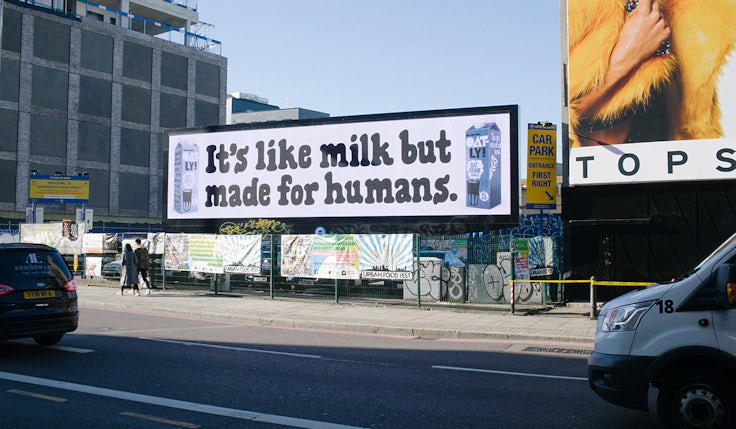Personalisation isn’t about bells and whistles
Companies need to focus on being useful and offering great service first, otherwise bells and whistles seem just that.
 In a previous Marketing Week article, I argued that personalisation is not the end game of marketing. By necessity, the most effective digital personalisation at scale is rather mundane, based on averages and often tacitly understood by the customer. Personalisation at a strategic level is not a one-to-one experience made explicit with trumpets and glitter. It is about improving conversion.
In a previous Marketing Week article, I argued that personalisation is not the end game of marketing. By necessity, the most effective digital personalisation at scale is rather mundane, based on averages and often tacitly understood by the customer. Personalisation at a strategic level is not a one-to-one experience made explicit with trumpets and glitter. It is about improving conversion.
This year, on my holidays, I was reminded again that personalisation should not be a high-stakes game.
We were staying in a hotel for just one night to break up a long drive. With our toddler and baby in tow, my partner and I were pretty frazzled when we arrived at reception. “Ah, yes, reservation for seven nights,” the concierge said. I corrected him and he soon found the right booking (“there are a lot of Davises here at the moment, sir”). Even such a brief misunderstanding is never the ideal welcome.
We took our keys and walked a long corridor, arriving at the door to our room, which was emblazoned with a large silver sash saying ‘Happy Birthday!’. Outside the door was an ice bucket with two glasses and a bottle of prosecco. As there was no birthday in our party, our hearts sank a little as we assumed it must be the wrong room. But, no, the keycard opened the door and on the table next to the television was a card that read ‘Dear Ben and Eloise, Have a great day. We hope you enjoy your stay.’
Our confusion was at least mixed with the relief of finding our bed for the night, though I was in equal parts bemused and annoyed to find that the prosecco had already been drunk and the room didn’t contain the travel cot I had requested.
I still don’t know if the staff had misread one of our dates of birth and a fellow guest had downed the prosecco, or if the previous occupant of our room was celebrating a birthday and housekeeping had got confused and left the empty bottle and banner but written a new card. I had no idea why both of our names were on the card either – maybe a database somewhere suggested we shared a birthday?
The whole scene – complete with grumpy toddler, face-masked parents, tired baby without a cot – left me with a terrible feeling of cognitive dissonance. There was no real harm done – we had a room and the staff were evidently trying to do their jobs (and add a special touch, even if it was decreed by management) – but I was tuckered out, in a strange place, and felt weirdly upset.
In pursuit of a great customer experience, it’s better to be useful first, to offer great service. Because ultimately if that customer service is lacking, the bells and whistles seem just that.
How many guests at this hotel have, like the Queen, enjoyed a second birthday?
I know this article reads like a tedious acquaintance recounting an even more tedious dream, but the episode served to remind me that it is the execution, the experience of personalisation for the customer, that is really important. And, what’s more, as Econsultancy founder Ashley Friedlein wrote in his 2020 trends predictions at the start of the year, ‘anonymous personalisation’ is actually really powerful.
“Great waiting staff, great landlords/landladies, or the famous village shopkeeper don’t actually need to know who you are to give you personal attention and cater to your needs. The sales assistant who can see you looking lost in a shop, offers to help and walks you to the product you seek while informally chatting doesn’t need to know who you are to deliver an experience that feels very personal.”
Friedlein goes on to say: “Digital experiences too can feel personalised without actually having to know who you are.” I would argue this certainly applies to the hospitality sector. Some hotels offer an app that will let you check in remotely and then open your room door on arrival. That certainly would have felt like a personal service, even if we might not have bumped into a soul.
The strange thing about my hotel example is that what the hotel was attempting relied on fairly basic information – my identity. This, if you refer to Experian’s six stages of personalisation, is pretty rudimentary stuff. Only ‘no personalisation’ would be less sophisticated. This wasn’t about mining my browsing history for insight, using partner data or incentivising services based on my previous purchase history. It was about poor execution.
In our current times, businesses are aware they need to stand out in order to weather the financial storm. A stronger brand and a better experience might just reduce price sensitivity or allow for a cut to advertising budgets.
But in pursuit of a great customer experience, it’s better to be useful first, to offer great service. Because ultimately if that customer service is lacking, the bells and whistles seem just that.







